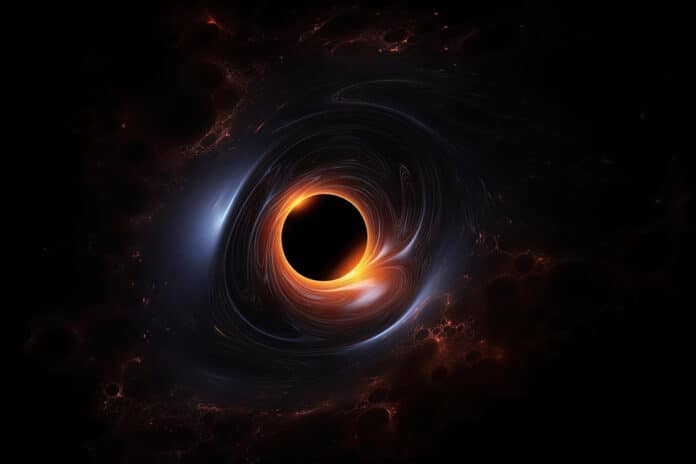Dark matter is the biggest missing piece in our understanding of the cosmos. Despite substantial evidence that dark matter accounts for 85% of all matter in the Universe, there is currently no consensus on its nature. This covers whether dark matter particles may collide with other particles like atoms or neutrinos or if they can pass through them unscathed.
One approach to test this is to observe how galaxies originate amid dense clouds of dark matter known as haloes. When dark matter collides with neutrinos, the dark matter structure disperses, resulting in the formation of fewer galaxies.
The problem with this strategy is that any missing galaxies are very small and far away from us, making it difficult to determine whether they are present, even with the greatest telescopes available.
Rather than targeting the missing galaxies directly, a new study used computer simulations to study the production of gravitational wave signals in simulated universes with different kinds of dark matter. Their simulations demonstrate far fewer black-hole mergers in the distant cosmos in models where dark matter collides with other particles.
While this effect is too small to be detected by existing gravitational wave experiments, it will be an ideal target for the next generation of developed observatories.
The scientists believe that their methods may spark fresh ideas for using gravitational wave data to investigate the Universe’s large-scale structure and shed insight into the enigmatic nature of dark matter.
Dr. Alex Jenkins (UCL Physics & Astronomy), one of the study’s lead authors, said: “Gravitational waves are a powerful new tool for observing the distant Universe. The next generation of observatories will detect hundreds of thousands of black-hole mergers every year, giving us unprecedented insights into the structure and evolution of the cosmos.”
Co-author Dr. Sownak Bose of Durham University said: “Dark matter remains one of the enduring mysteries in our understanding of the Universe. This means it is especially important to continue identifying new ways to explore models of dark matter, combining both existing and new probes to test model predictions to the fullest. Gravitational-wave astronomy offers a pathway to better understand not just dark matter, but the formation and evolution of galaxies more generally.”
Journal Reference:
- Markus R. Mosbech et al., Gravitational-wave event rates as a new probe for dark matter microphysics, Physical Review D (2023). DOI: 10.1103/PhysRevD.108.043512
